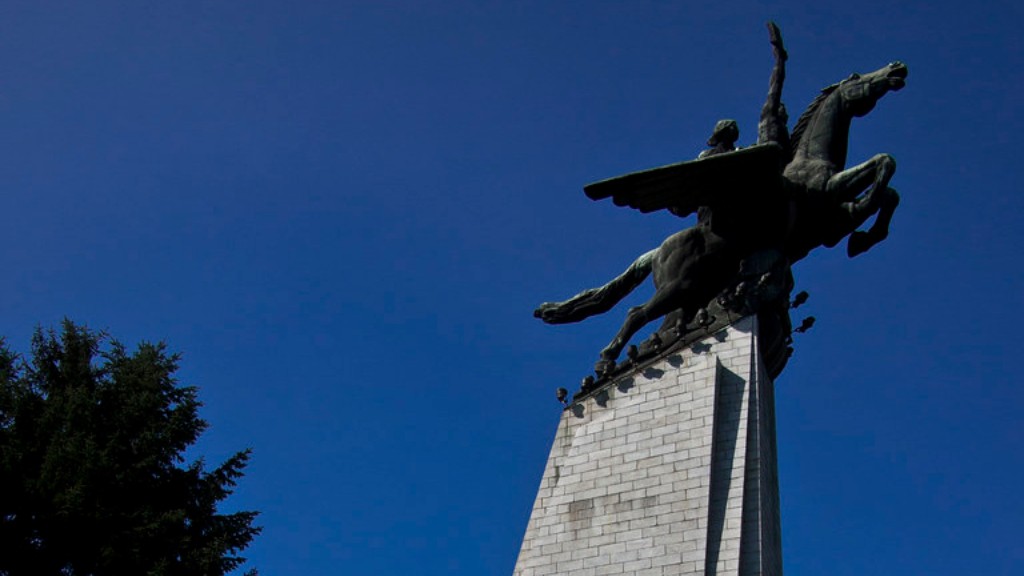Overview of North Korea’s Governance
North Korea is a single-party state ruled by the Korean Workers’ Party under Chairman Kim Jong-un. It follows the socialist-style government structure and follows the instructions of the Worker’s Central Committee, with Kim Jong-un as the leader of the party. Although North Korea has been identified as a despotic regime by a lot of scholars, it is still viewed by its citizens as a legitimate government. North Korea has a constitution and operates on a number of principles, but many of these are simply ignored at times.
North Korea is a communist dictatorship with an authoritarian system of government. This is coupled with a highly centralized and collectivized economic system that favors the elite class of party leaders and state officials, leading to economic stagnation, poverty, and a lack of basic freedoms for its citizens.
Forms of Government in North Korea
At first glance, it looks like North Korea is a highly centralized government, but in fact it has a unique form of government shaped by its history and culture, which is somewhat different from other countries.
North Korea’s system of government is a mix between a totalitarian dictatorship, a communist Marxist-Leninist government and a single-party state. The power is centralized in the top of the government, with the Executive Branch headed by the President and the National Assembly, and then the three branches of the government (executive, legislative and judicial) as per the 1972 Constitution.
The Executive Branch is led by the President (Kim Jong-un) who is selected by the Supreme People’s Assembly, a unicameral legislature composed of deputies from each province with a five-year mandate. The Legislative Branch is headed by the Supreme People’s Assembly and consists of 687 deputies elected by a system of regional and provincial quotas. The Judicial Branch is headed by the Supreme Court and other lower courts, and final appeals are made to the Central Court.
The Role of the State in North Korea
The state of North Korea holds a critical position in North Korean society. It oversees virtually every aspect of life and plays a key role in both politics and economics by influencing the lives of its citizens in different ways. The government provides education, healthcare and utilities, while it also regulates the economy, sets prices, establishes the currency and sets employment quotas.
The government is also the final arbiter in all matters concerning the country, from military strategy and foreign policy to labor relations and economic development. The state is in charge of issuing and administering laws, giving commands and carrying out judgments, licenses, and economic plans.
Central Committee’s Role
The Central Committee is a key part of the North Korean government structure. It is the governing body for most of the key decisions of the party and sets the core policies for the state. All laws, decrees and official documents are approved or issued by the Central Committee, which also has the ultimate authority to execute or dismiss committee members at any time.
The Central Committee is comprised of several key departments and the party’s General Secretary, the most senior position in the government, is chosen by the Central Committee. The Committee members are the country’s elite and occupy the most important positions in the government and the economy, making sure that the government’s policies are carried out effectively.
Citizen’s Rights
The North Korean government is well known for its repression of political opponents and its denial of basic rights and freedoms to its citizens.Constitutionally speaking, all North Korean citizens have the right to vote and elect their representatives, but in reality only a select few are allowed to do so, typically party loyalists and those close to the ruling elites.Freedom of speech and the press is severely suppressed, and dissent is typically met with prison terms or even death.
The right to free association is also suppressed, and North Koreans are only free to associate with those approved by the state. Most of the media is state-controlled and there is no independent media sector that can provide unbiased information to citizens.
Party System
North Korea is a one-party state with the Korean Workers’ Party firmly in control since its founding in 1949. The WPK is a Marxist-Leninist socialist party that strives to create a “just and powerful nation” through economic and political centralization.
Membership in the Party requires only a few qualifications. The central committees and Supreme People’s Congress (the legislative body of North Korea) are reserved for party members only, and all members of responsible state jobs must be members of the Party. This allows the upper echelons of the government to largely remain the same from generation to generation.
Conclusion
In summary, North Korea has a highly centralized government with a number of unique features shaped by its history and culture. It is a single-party state ruled by the Korean Workers’ Party under Chairman Kim Jong-un, and it follows a socialist-style government structure. There are limited rights and freedoms afforded to citizens, and the state oversees virtually every aspect of life and plays a key role in both politics and economics. The Central Committee is a key part of the North Korean government structure and sets the core policies for the state.

